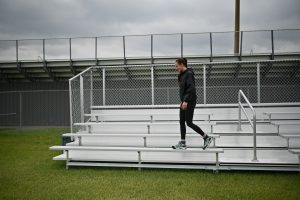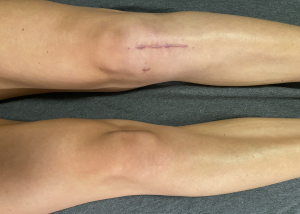Post-Op – The initial couple weeks
This post discusses my surgery and the first few weeks after surgery.
My surgery was done in Banff, Alberta which is about a 2 hour drive from where I was living (in Calgary), my boyfriend drove out with me the night before and waited the entire day I was getting my surgery. Mine ended up taking much longer than usual since they also had to perform a meniscectomy on the lateral meniscus injury they found (a bucket handle tear), as well as, a complication occurred during the surgery. The surgeon broke a piece of wire in my knee and they had to perform an unplanned incision at the back of my knee to remove it. All of this ended up lasting for a few more hours than originally planned. I ended up being at the hospital for a total of 10 hours that day.
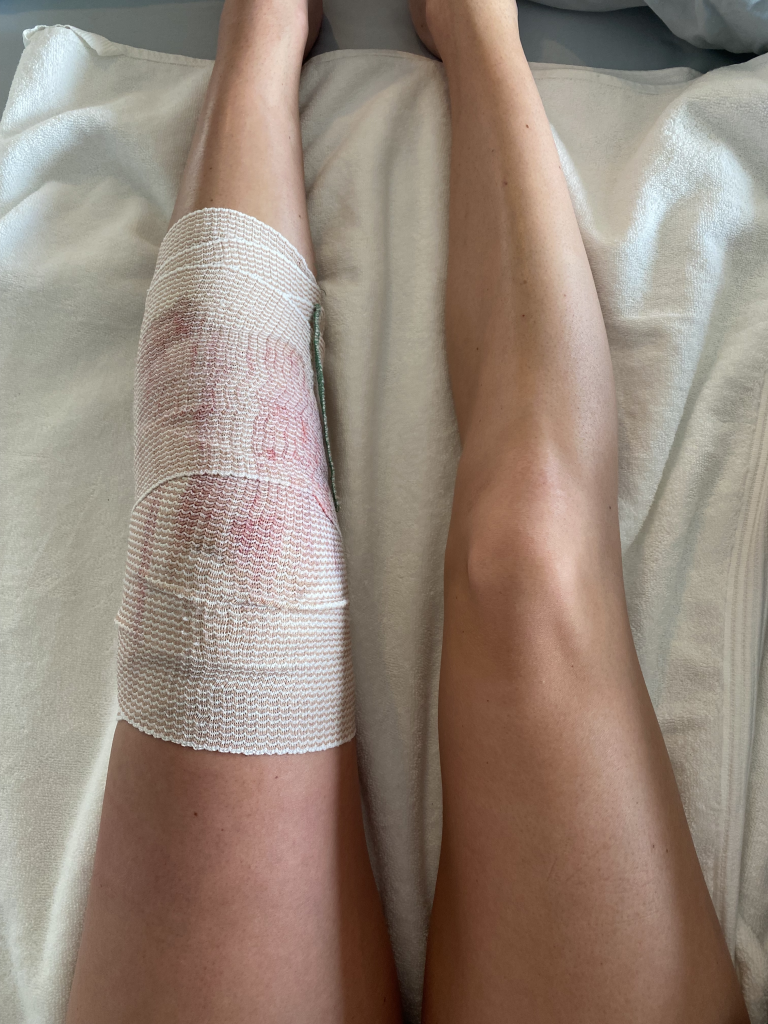
The initial day or two was manageable as my support systems – my boyfriend and family – really made things easy for me. The pain medications and freezing eventually wore off and there was a heavy achiness at the front of my knee. The other thing that would happen is every time I would lower my leg from an elevated position, I could feel the blood rush back to the injured area which was quite uncomfortable.
I made sure to have a lot of Netflix recommendations and books to read in the first week. The other super important thing is to understand the exercises you can be doing day 1 post-op throughout the first week. Getting your extension back, your quads firing and swelling/pain under control are top priorities. The hospital physio should provide you with a list of these exercises.
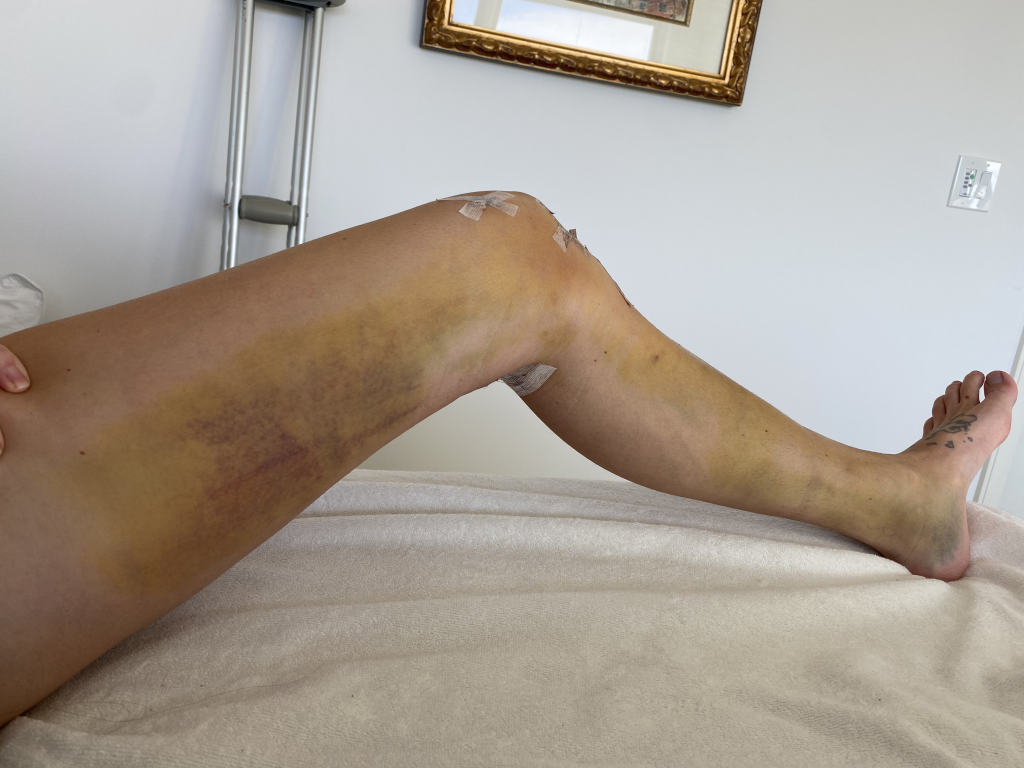
I made my first physio appointment about 1.5 weeks after the surgery, ensuring that I could remove the tensor wrap and was feeling well enough to be out and about. Each person will be different in how they feel putting weight through their leg. I did not receive a brace post-op and was using crutches for about 3 weeks, then reduced to 1 crutch for another 1-2 weeks. Early weightbearing is also crucial in getting the quads firing again.
Your physio will have small progressions for those exercises, education about your recovery and should have a plan for you. If this is not the case, it is essential to find one who does.
The first part of this blog is the physical side surgery, the next part addresses the mental side of the surgery. It’s addressed less but is just as important. Your independence is taken away, your sport and movement is taken away, you are in pain and worried about your knee, all of these feelings seem to come crushing down at once, even though I had been through surgery before and knew what was coming.
Some tips for the mental and emotional side of after an ACLR surgery
I do not usually journal or write my thoughts down, but sitting for most of the day and when all of your regular stress management stresses have been removed: working out, soccer, going for walks, you tend to gravitate towards other options. Here are a list of the writing prompts I used during the first 2 months of rehab:
Gratitude:
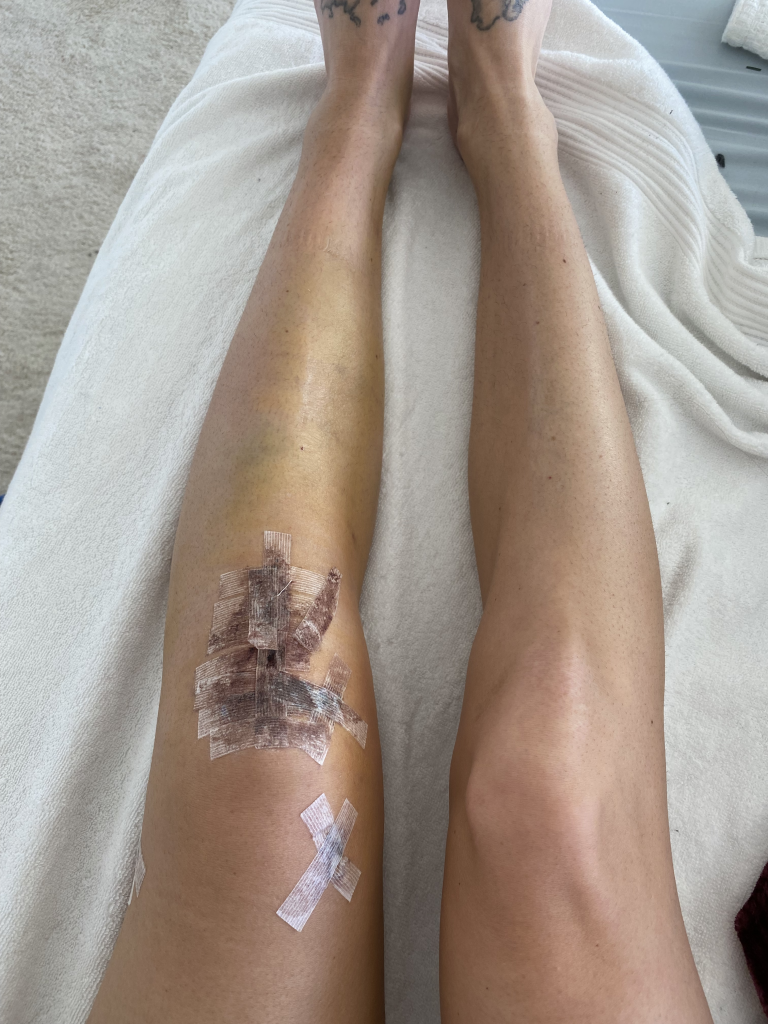
- What would you be sad about if it was missing from your life?
- What are you grateful for today? (1-2 items)
- What are you grateful for in your life? (1-2 items)
Before physio:
- set your intention – identify your mindset
- Determine 3 focus points
After physio:
- what went well in the session, how did it feel, what could be improved?
- Write down one win
Goal writing:
- Identify your working goal
- Write out a dot point plan to achieve progress
- Identify any anticipated barriers & a strategy to address each barrier
- Write down your supports
Addressing your worries:
- write down each worry – as catastrophic as the thought is
- Write down ‘decatastrophizing thoughts’ that support how those things are unlikely to actually occur
You can purchase the ACL Injuries ebook where I talk about my experience, what to expect, graft options, how to find a physio, the mental aspect of the injury, and physical timelines to expect during recovery.
You can find my Guides on Instagram here:
I speak about tearing my ACL on my instagram here:
If you have questions regarding ACLR, I do recommend you speak to your own physio and surgeon as they know your injury. There are a few instagram pages that have great resources for those going through an ACLR which you can find here:
